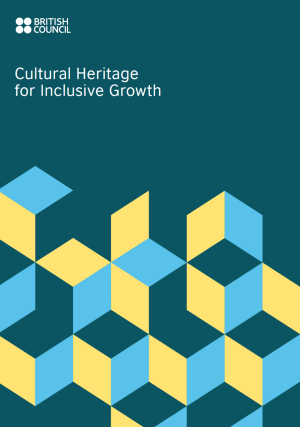 The British Council has recently launched a report entitled ‘Cultural Heritage for Inclusive Growth’, to share findings of a consultation and international research into cultural heritage for inclusive growth.
The British Council has recently launched a report entitled ‘Cultural Heritage for Inclusive Growth’, to share findings of a consultation and international research into cultural heritage for inclusive growth.
The British Council writes:
The ‘Cultural Heritage for Inclusive Growth’ report presents a new approach to inclusive growth that looks at the social and economic benefits of cultural heritage for all levels of society. It promotes a way of working together that is wide reaching and builds trust and connections between the UK and overseas….
This is a British Council-produced report exploring the notion of Cultural Heritage for Inclusive Growth. Cultural heritage in this context is used to mean many things, from the built environment through to cultural traditions such as music and language. It also includes artworks, manuscripts, monuments, archeological sites, oral traditions, festivals, the performing arts and traditional crafts.
Inclusive growth means working with and for all levels of society in order to reconcile the divide between economic growth, and rising poverty and inequality. By working inclusively with communities and wider society, growth can be achieved that benefits a far wider cross-section of that community, and works to reduce the gap between rich and poor. The key findings of this report suggest that investing in a people-centred approach to heritage, that benefits all levels of society, will bring social cohesion and economic growth to emerging economies and developing countries.
The UK has a role to play, with a heritage and cultural sector that has expertise in this field….
